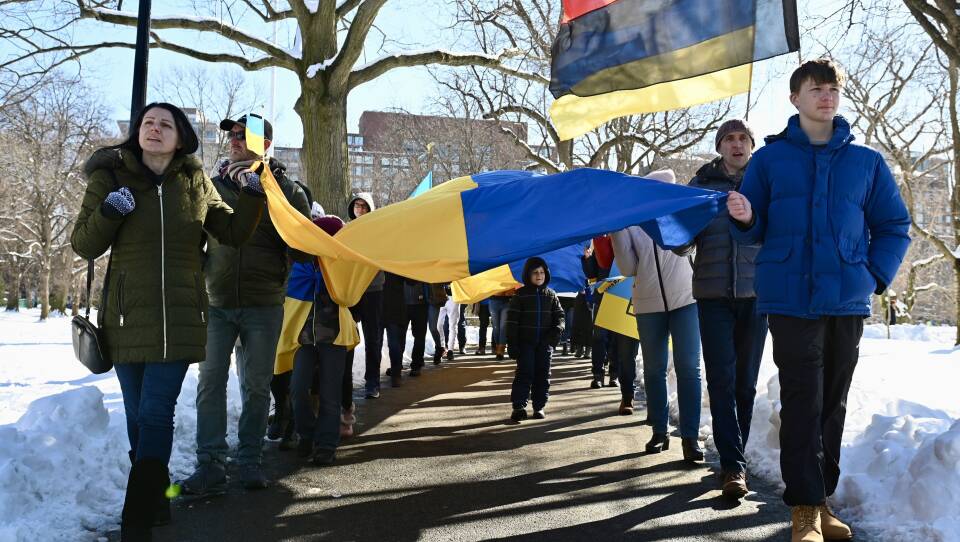Russian and Ukrainian officials have engaged in on and off peace talks in recent weeks. Meanwhile, fighting has continued.
Vsevolod Petriv, president of the Boston Branch of the Ukrainian Congress Committee of America, said he does not think the end is in sight. He believes the end of Russia’s invasion will only come when Ukraine pushes Russian forces out, rather than appeasing Russia with territory or promises not to join NATO.
“Despite what people are thinking that maybe things are winding down, I think we're still in the middle of it,” he said.
Petriv, who grew up in the United States but has family and friends living in Ukraine, and Tetiana Litus, who moved to the U.S. from Ukraine a few months ago, joined Boston Public Radio to talk about how their community has been coping as the Russian invasion drags on.
Petriv said his family and friends have moved to the western part of the country, but they don’t want to leave.
“There is a plan if things get really bad to send the children in with one of the women, but so far, everybody is staying put,” he said.
Litus said she maintains hope in the Ukrainians fighting on the ground.
“When we go in rallies, we say ‘Glory to heroes, glory to Ukraine,’” she said. “They're really heroes … most of people that I know, they stayed in Ukraine. They could have left, but they just want to be there for their country and for the people.”
She explained how every morning, she wakes up and checks her messages to make sure her family and friends are OK.
Her mother moved out of Kiev at the beginning of the conflict, settling in a nearby town. After seeing tanks appear in the region, she moved further west to a town called Rivne. Recently, though, Litus found out about a bombing at a gas station there.
“Unfortunately, there is no safe place right now in Ukraine,” she said.
Litus’ father volunteers for the Red Cross, bringing humanitarian aid to wounded people. Meanwhile, Russia has not refrained from bombing civilians .
"They [Ukrainians] have a lot of humanitarian supplies in the war houses, but unfortunately there is not enough trucks to deliver those supplies to the people,” she said. “So that's the main problem right now.”
Both Petriv and Litus worry that their family members and friends would have trouble leave Ukraine for the U.S., and they want to see the U.S. doing more for refugees. Last week, President Joe Biden announced that the U.S. would accept up to 100,000 people fleeing Ukraine and give $1 billion to European countries assisting in humanitarian efforts.
“100,000 is a small number,” Petriv said. “Plus, there's no process. People right now, if they're coming, are stuck in the normal process, which means at least a year to wait for an appointment.”
While some people have managed to get tourist visas, Petriv said that option does not work for families who want to regain some semblance of normal life with school and work. He thinks the U.S. should accept Ukrainian refugees for longer periods.
“In some places, there's no place to come back,” he said. “They want to get back, but there's no place.”







